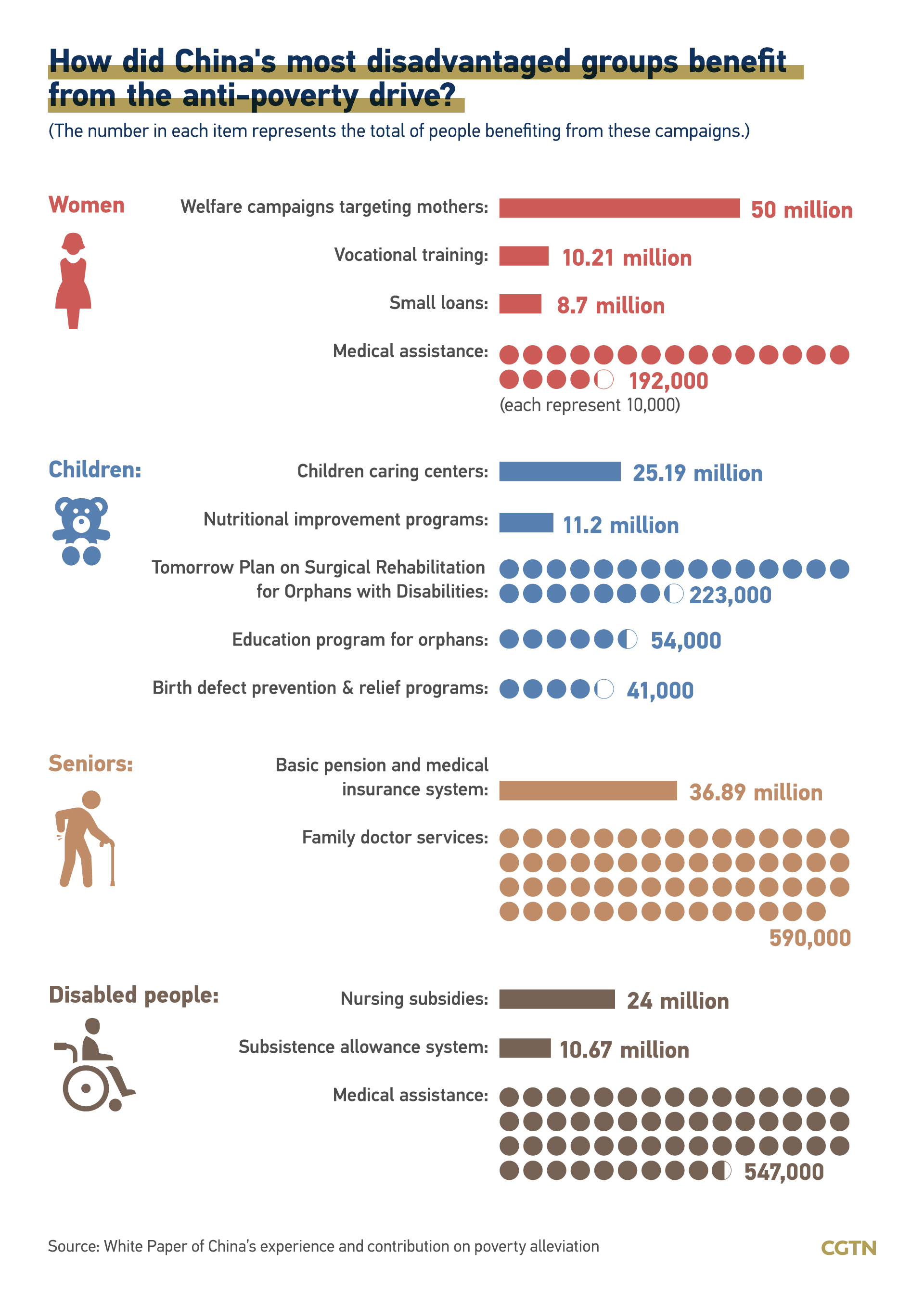Disadvantaged groups including women, children, the elderly and disabled were among those prioritized by the government in China's anti-poverty campaign, according to a white paper released on Tuesday.
The nation enacted favorable policies and provided more assistance to raise the welfare level of these groups, said the paper, titled "Poverty Alleviation: China's Experience and Contribution."

Among nearly 100 million who have shaken off poverty, women account for half. A total of 10.21 million impoverished women have received skills training, over 5 million of whom have increased their incomes.
Efforts have also been made to extend greater care to children. The government gives a free daily pack of nutritional dietary supplements to every baby and toddler aged 6-24 months in destitute areas. By the end of 2020, a total of 11.2 million children in those areas had benefited from this project.
For senior citizens, China raised the basic pension and subsidies for basic medical insurance. The subsidy system for the poor population of advanced age and incapacitated seniors affected 36.89 million people.
Additionally, more than 7 million poor people with disabilities have been lifted out of poverty as scheduled, and about 10.67 million people with disabilities have been offered with subsistence allowances, according to the white paper.
In 2016, China's State Council ratified the "Outline of the Work for Persons with Disabilities" to improve the status of persons with disabilities, providing assistance in terms of living, employment, health and education.
To further help people with disabilities find an independent position in the society, China provided huge grants to companies who have job openings for disabled people.
Moreover, training sessions, webinars and vocational competitions are frequently held with the assistance of the public sector, enterprises and NGOs to enhance disabled people's mental health and vocational skills.
"The training and competitions are tailor-made for different groups of disabled people. We don't want the extensive kind of assistance, which is a waste of social resources. We'd like a more practical, efficient and customized mechanism of person-to-person help for those who are in need," said Wang Ning, director of China Disabled Persons' Federation Employment Service and Administration Center.
(Graphic by CGTN's Chen Yuyang)

